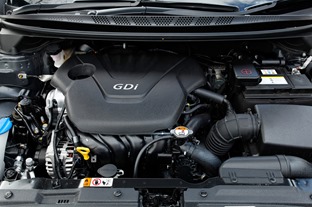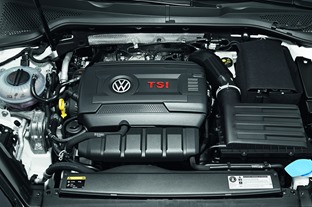
Automakers say that downsizing is the only way to go in order to comply with ever stricter fuel emissions regulations. This is true when it comes to CO2 emissions, but it looks like there are far more poisonous gases that the new-generation of turbocharged engines with direct injection emit into the air we breathe.
According to a study by independent technical research institute TÜV Nord, new-generation petrol engines typically release around 1,000 times more harmful particles, including carcinogens, than traditional designs, and 10 times more than new diesel engines .
This is shocking information, to say the least, especially since carmakers claim that gasoline direct injection petrol engines have helped them dramatically reduce emissions.
The study, which was seen by the Financial Times , refers to particles classified by the World Health Organization as harmful, including carcinogens, substances that are believed to cause cancer.
The explanation for this is that new-generation gasoline engines operate with higher pressure in their cylinders to reduce emissions, but in doing so, they produce larger numbers of the particles. European regulations require filters that stop particle emissions to be fitted to all new diesel cars, but there is no similar condition for gasoline engines. A diesel particulate filter costs as little as €50 ($68).
According to EU research, air pollution is directly responsible for 406,000 deaths each year, causing causes more than 100 million lost days of work – that translates into losses for the EU economy of more than €330 billion ($448 billion).
Whether we like it or not, cars are the largest source of air pollution in European cities – but a significant part of that pollution can be eliminated if solutions to limit emissions of particles were applied to new-generation gasoline engines as well.
By Dan Mihalascu

